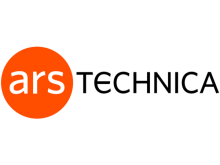Ars Technica on Tech Giants Coming Out Against Virginia Barrier Bill
Ars Technica - January 25,2017
Google and Netflix join fight against municipal broadband restrictions
Written by Jon Brodkin
Google and Netflix joined a handful of advocacy groups and other companies lobbying against a proposed Virginia state law that would make it far more difficult for municipalities to offer Internet service.
As we previously reported, the "Virginia Broadband Deployment Act" would prohibit municipal broadband deployments except in very limited circumstances. For example, localities wouldn't be allowed to offer Internet service to residents if an existing network already provides 10Mbps download and 1Mbps upload speeds to 90 percent of potential customers. Even if that condition is met, municipalities would have to jump through several legal hoops before being allowed to build a network.
...
"A number of local governments have already passed resolutions condemning the legislative attack on their right to make local telecommunications decisions and we expect to see more," the Institute for Local Self-Reliance's Community Networks project wrote Monday. The 10Mbps/1Mbps speeds specified in the legislation are "reminiscent of antiquated DSL," the group said.
...









